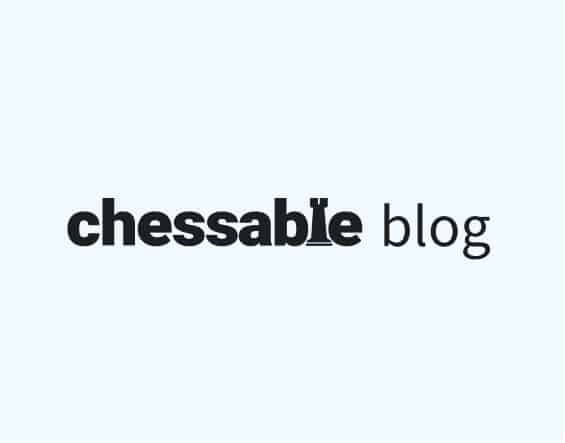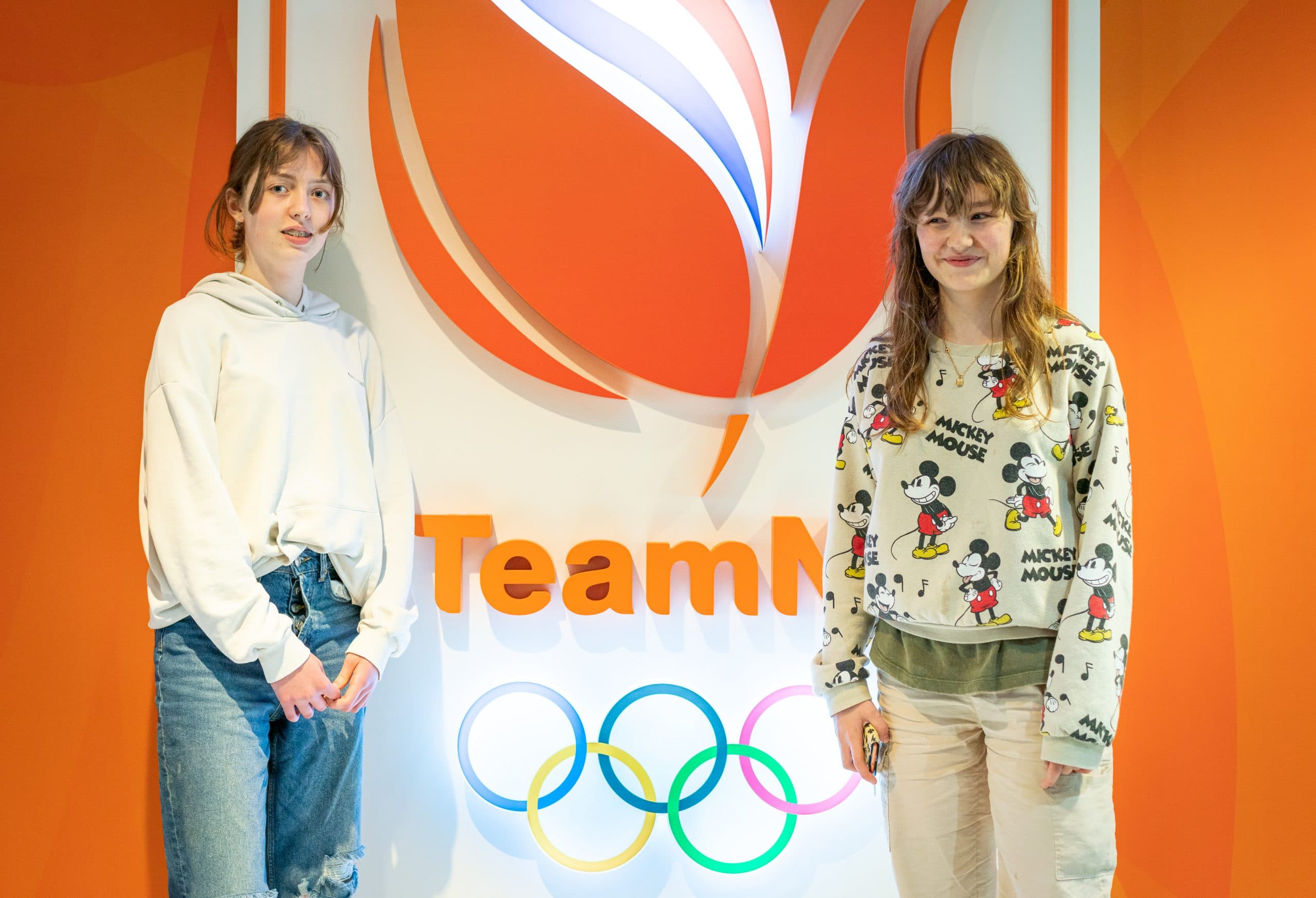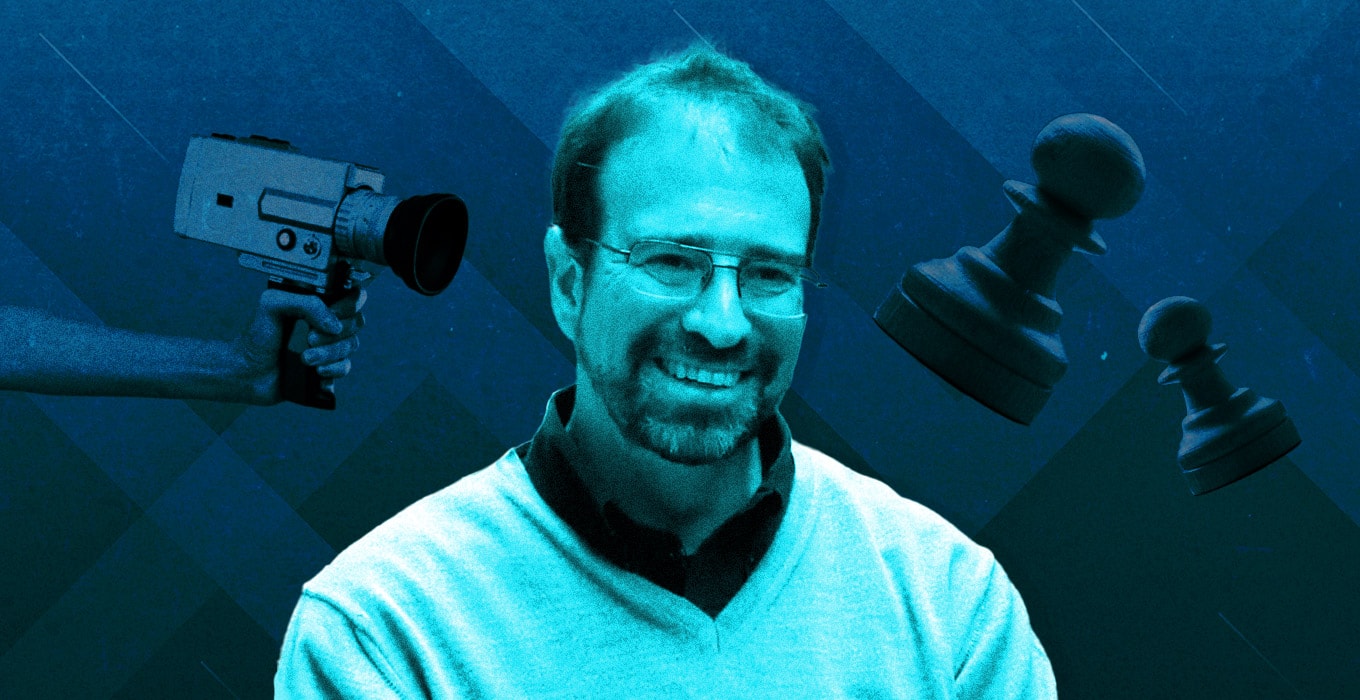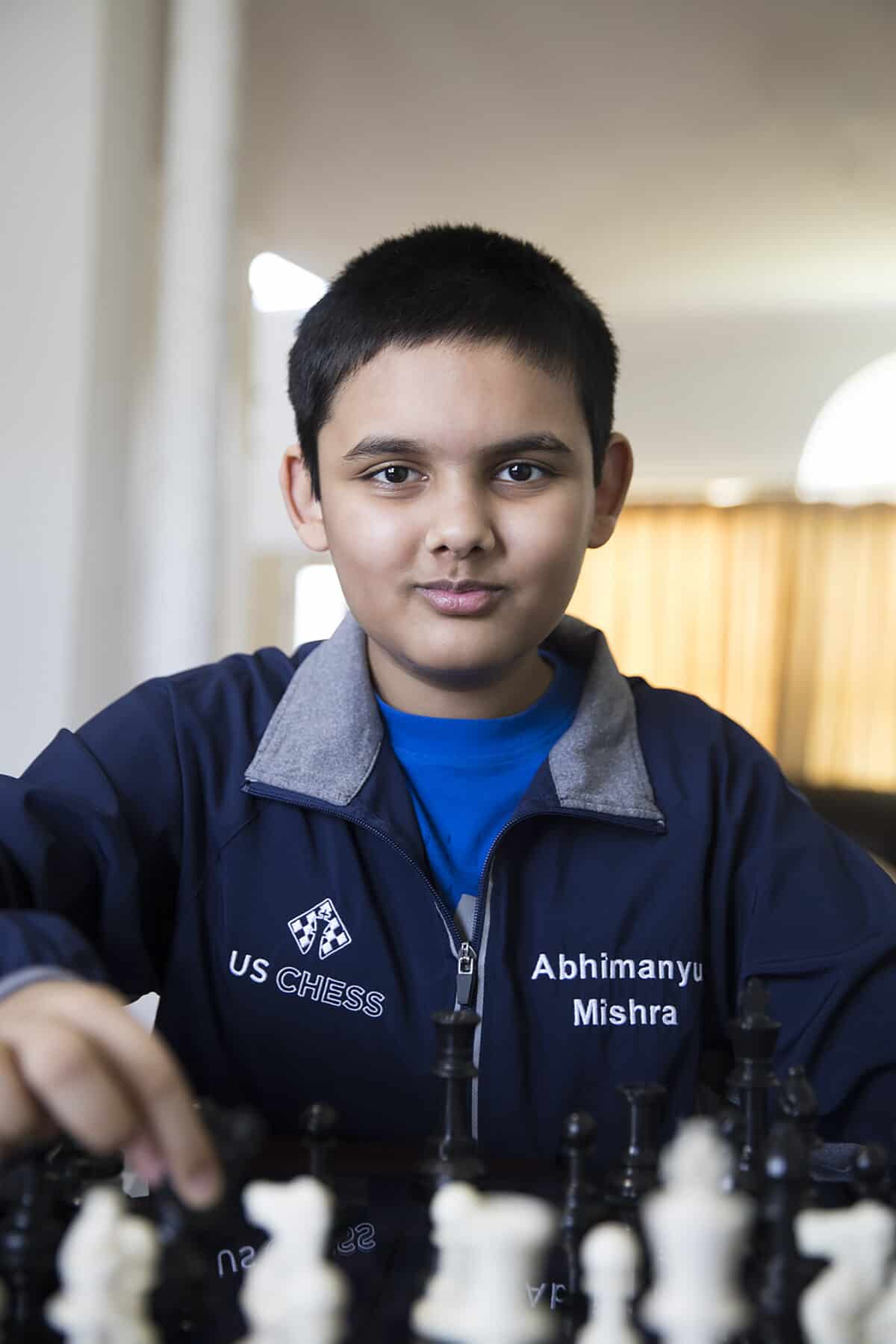Your weekend reading is here, as we proudly present an interview with International Master Christof Sielecki.
Christof is a prolific chess author, with many Chessable courses already released and several more in the pipeline.
Indeed, we highlighted his new course, Lifetime Repertoires: 1. c4 / 1. Nf3 Part 1, created in conjunction with FIDE Master Carsten Hansen, earlier this week.
In fact the very next thing Christof did after the course was published was find time in his hectic schedule to be interviewed for this blog.
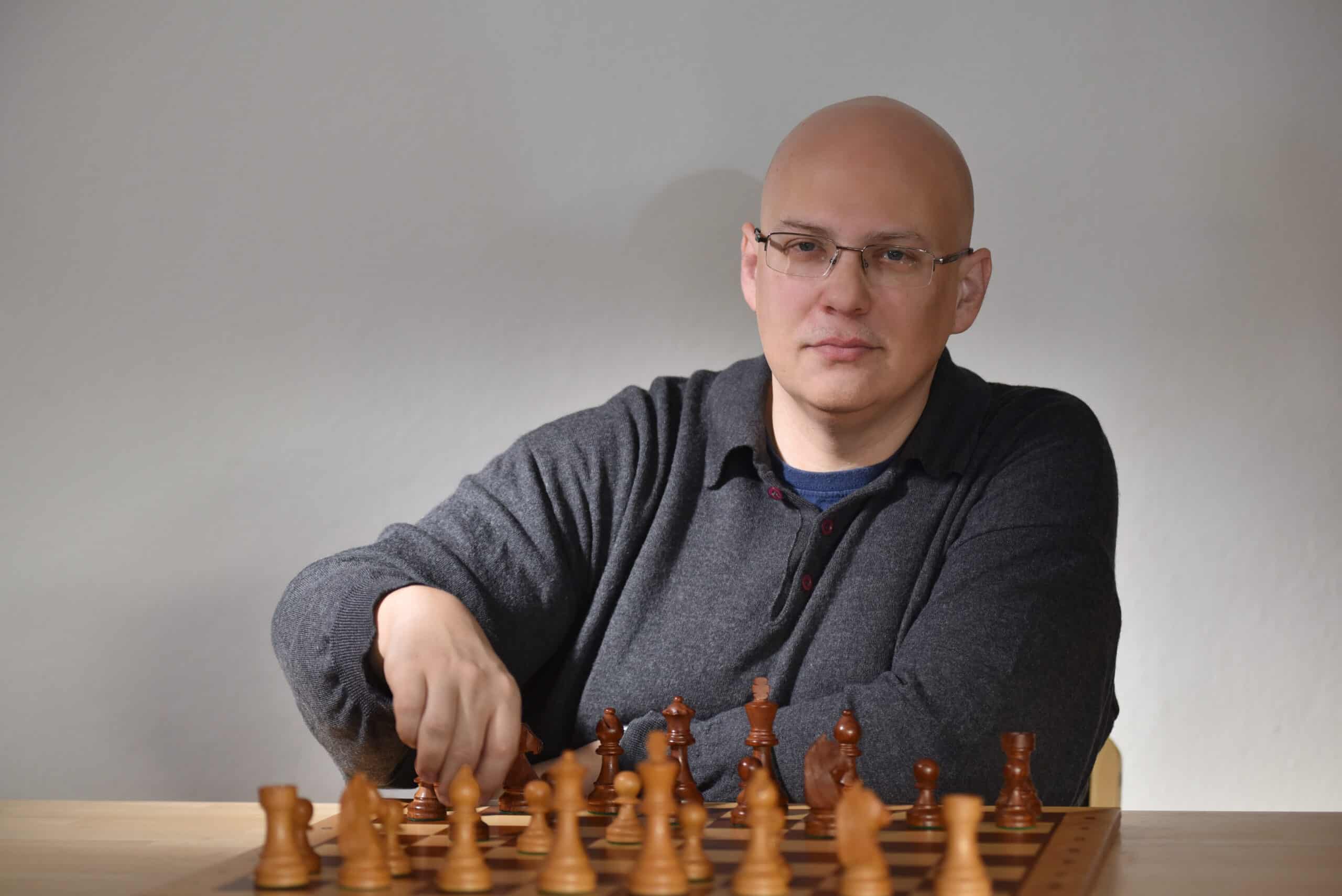
Early Moves
How did your chess journey begin?
My first chess memory is playing with my Grandpa, when I was maybe 10 or 11. My interest spiked when I was a bit older. The first tournament I remember following was the 1987 World Championship match in Seville, featuring Garry Kasparov and Anatoly Karpov. I was watching live on Dutch Teletekst, the ancestor of modern chess broadcasting!
Did you have any particular chess heroes or role models to inspire you in the early days?
I’m about the age of Vladimir Kramnik, and always followed his games from the very start. I always enjoyed his style of play. I also studied Karpov a lot, as it always was mysterious to me how he won some of his games.
Which chess books did you find most instructive or inspirational during your early years?
I liked Edmar Mednis’ book How Karpov Wins a lot, I still have it on my book shelf, after all these years. I only recently ‘rediscovered’ it and remembered how often I played through the games.
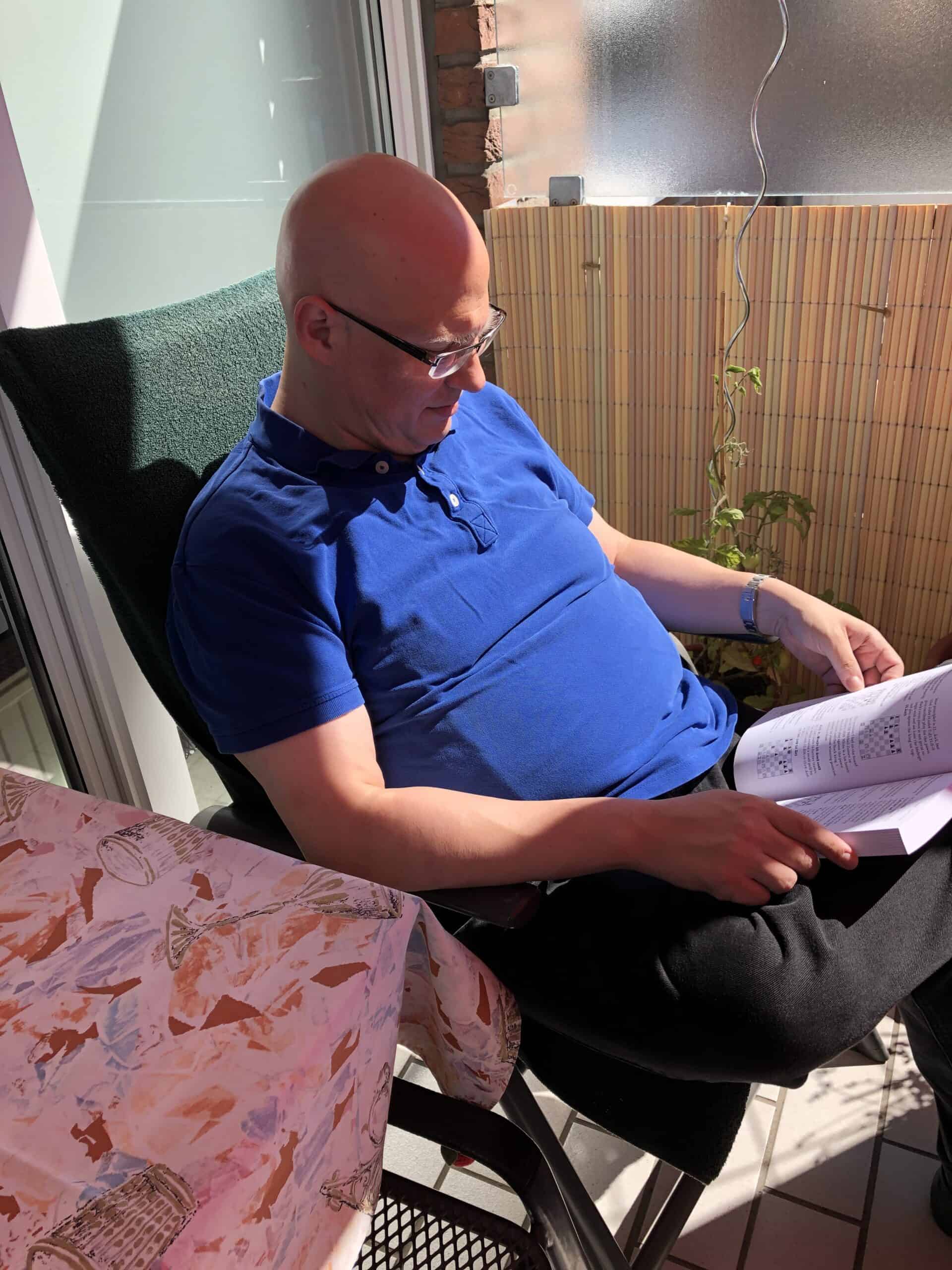
Were any established players particularly helpful or kind when you broke through to upper levels of chess?
Not sure that ‘Upper levels of Chess’ apply to me, actually!
Did you have a trainer?
No, I am self-taught mostly. However, I did study a lot together with friends and teammates. There was never a teacher-student situation, though. We we just sharing ideas, mostly.
How would you describe your style of play?
Too optimistic strategist!
Were any other players influential in the development of your style?
I think Kramnik and Karpov from the junior years are the main ones.
Success
What is your most memorable success (so far!)?
As a player: winning the 2013 Open in Latschach (Austria), ahead of many grandmasters and winning the Dutch Team competition with my team Voerendaal. As an author: the great feedback for my Keep It Simple courses.
Who are your most memorable opponents (regardless of results) and do you have interesting anecdotes from your games against them?
My most memorable opponent was Tony Miles. I played him in 1997, Groningen Open. I lost quite clearly and had a friendly analysis later with him. A bizarre fact is that in 1997 it was pre-Internet, and you would get the pairings for the rounds by calling a phone number. Then a tape would play and someone would read out the pairings for you. I remember that I had to call more than once to really make sure I’d play Tony Miles the next day!
You are a renowned chess coach. What is about coaching that you enjoy?
Nowadays I focus mostly on writing for Chessable. However, I still enjoy teaching and helping juniors at events, mostly. It is always enjoyable to transfer knowledge and experience to younger players and help them to improve. Often you learn something yourself, not just about a chess position, but about learning methods and how to best explain things. This has also influenced my chess writing.
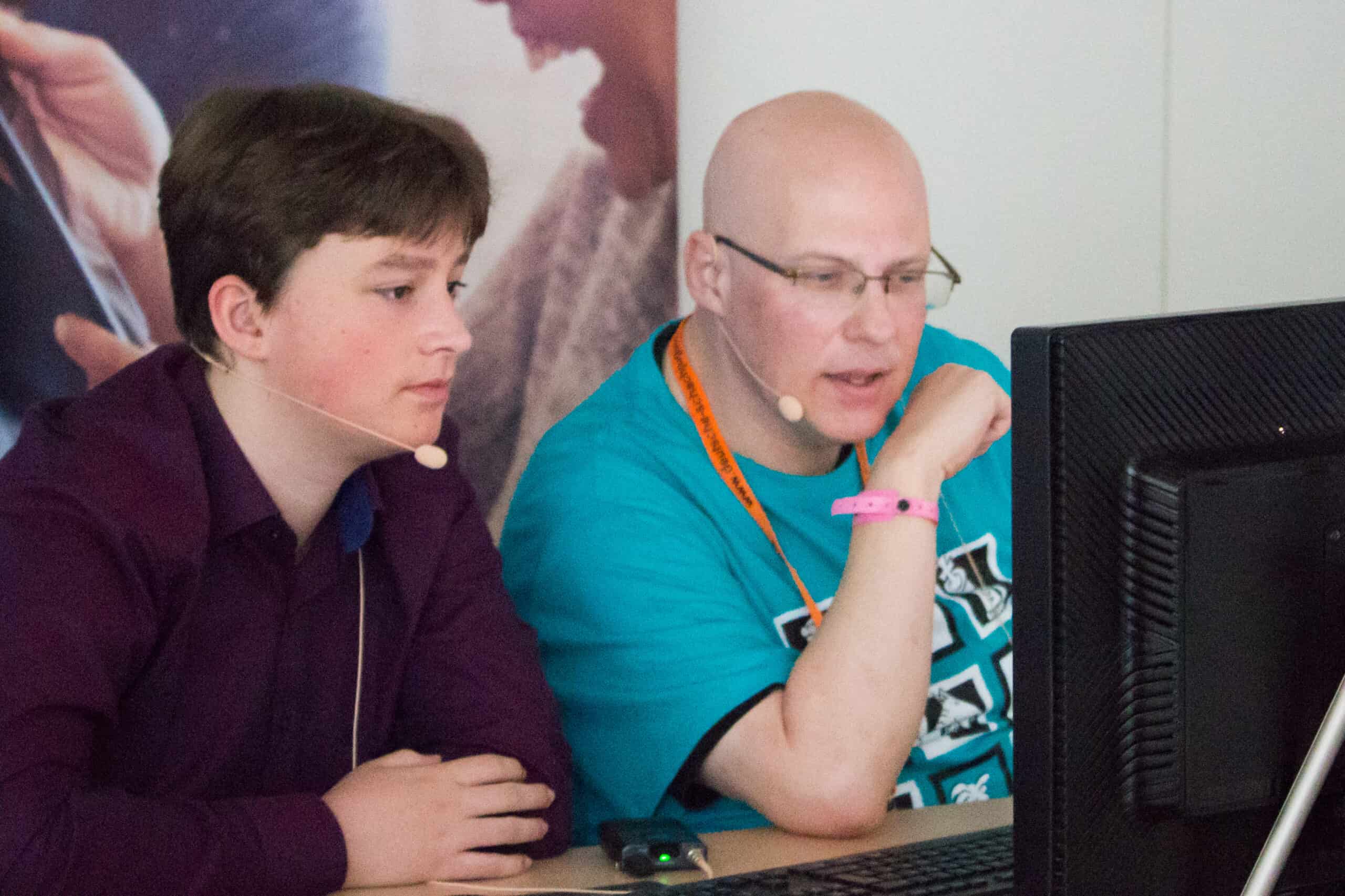 The Digital Era
The Digital Era
Online elite chess events proved to be a major success over the Summer. Do you embrace the new era of digital chess or are you eager for real-life, over-the-board action to return?
I mostly miss meeting my clubmates or friends that I met through chess. I don’t miss the actual playing that much, because I did not play at lot over the board anyway.
The 2020 Candidates tournament took an enforced break due to the current emergency. Should the tournament have even started under the circumstances?
With hindsight you can easily say: “Of course it should not have been started!”, but at the time, when the very first round was started or before, it was not completely clear to me. I also underestimated the situation at the time at first, to be honest. My take: Yes, it would have been wiser to not start, but I did not feel it was 100% obvious at the time.
How do you feel about continuing a tournament many months after it started?
To be honest: I don’t care that much anymore. In my mind Magnus Carlsen will beat the winner anyway and this match will be the end of Classical World Championship Matches – just my take. So I feel the Candidates is part of the past already, in my mind.
We’ll move to events in the style of the new Champions Tour, with faster time controls. Or of the style of the finals of the Magnus Carlsen Tour, a match format with more games that are faster then Classical, but maybe longer than 20 minutes per player. Of course these should be played over the board, and not online. Hopefully this is possible in the near future.
What is your opinion on FIDE in general. What do you think are doing right and what do they need to improve?
I don’t think I am qualified to answer this fairly, as I don’t have a full picture of what they do. Many things certainly are done well. In general I am critical about decisions that feel very political and are not transparent.
Working with Chessable
How did you become involved with Chessable?
In the early days, 2016, John Bartholomew asked me if I’d be interested in writing a course for Chessable. My Benko Gambit course is one of the oldest courses on the site, I bet.
Tell us a little about your range of Chessable courses.
I have written opening courses on various subjects. I have written courses on the Benko and English Opening in 2016, Keep It Simple 1.e4 in 2018 (Chessable’s first course with video!), Keep It Simple 1.d4 in 2019. I also developed courses for Black based on Magnus Carlsen’s openings in 2019 and based on Fabiano Caruana in 2018. Now the second Lifetime Repertoire is released, on 1.c4/1.Nf3.
Christof’s Chessable courses are available here.

On average, how long does it take you to write a Chessable course?
A tough call. I can tell you that just in the last weeks before the November 16 release of the latest course, I have worked more or less non-stop on it. A large course like a Keep It Simple or Lifetime Repertoire takes 100s of hours.
Are you ever concerned that you are revealing too much about your own favourite lines in your courses, this making it easier for your opponents to prepare for you?
No, not at all. I don’t play that many serious games and often prepare surprises for them.
What else you have in the Chessable pipeline?
After the two parts for Lifetime 1.c4/1.Nf3 there is a course on the Pirc for Black in the works, and one that is not yet ready to talk about.
Work and Ambition
Do you still have the time and desire to work on your own game?
I don’t have the time, but would like to make more time for it. The Chessable work keeps my opening play top notch, but the actual playing ability I’d like to keep fresh and improve more. Currently I don’t study at all, only a bit while I am teaching, actually. When I give a position to solve to a student, I’ll also have a bit of a training effect. But I have no real training plan for myself and think about changing that. I feel keeping your own play fresh helps with other chess tasks, as well.
What ambitions do you have, as a player?
It’s a tough question, as you don’t quite know what type of event we will have in the future. Online, Hybrid, or just over-the-board? I am not a fan of Classical time control games, and most possible goals that you can ‘measure’, like titles, relate to that. So I don’t have a clear ambition in that regard, like a title or rating.
But I’d like to simply play better in general, and understand some parts of chess better. I feel I do understand some things well in Chess, and some I am bad at, in comparison. Maybe I need to write a Chessable course about fixing my weaknesses!
Club players are always interested in ways to improve their game. What advice would you offer to them?
Study topics that you enjoy. Sounds simple, but it works. Almost all players have good prospects to improve ‘within their comfort zone’. Focus on that first.
Also go for training goals that you can actually do. Better do five tactics a day for a year, then 30 on the first three days and then stop. The same approach works for many other habits.
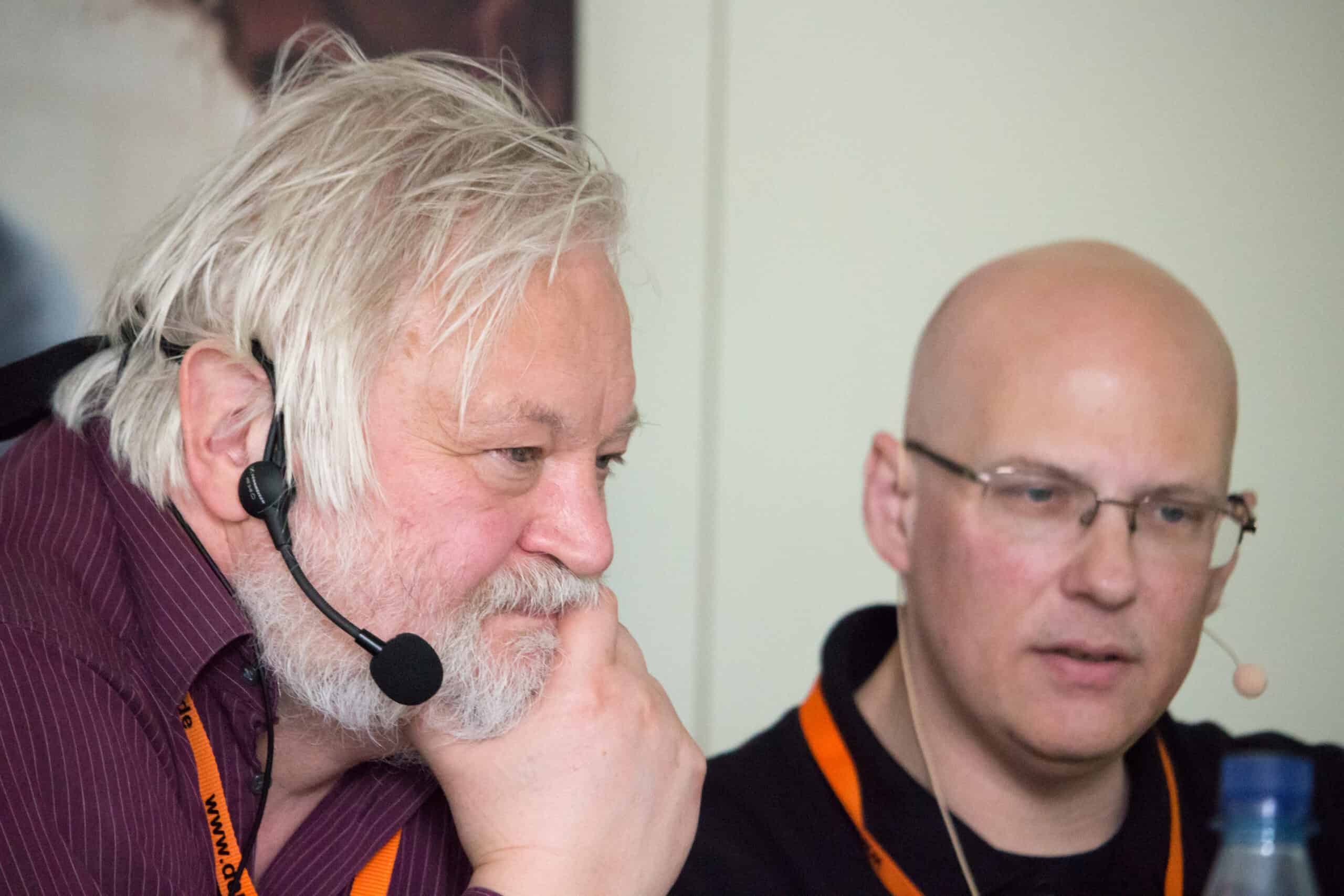
How do you cope with the pain of defeat?
I am usually very annoyed right after the game, but it’s better quickly. For me it’s usually helpful to get an idea what I did wrong. This somehow gives you the idea that next time you’d avoid the same stupid play. Of course, that won’t work! But it helps at the time!
Favourite Games
Do you have a favourite game of your own?
My win against IM Vincent Rothuis.
We will examine that game in our series on ‘Chessable Authors in Action.’ How about a favourite game from history?
I loved Rotlewi-Rubinstein as a young player.
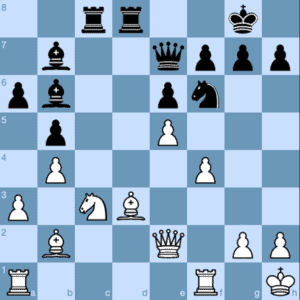
Georg Rotlewi – Akiba Rubinstein
Lodz, 1907
Black to play
Rubinstein, without doubt one of the strongest players never to have become World Champion, makes excellent use of his active pieces to produce an unforgettable finish.
20 …Ng4
The immediate point is that this move does not lose a piece, as 21 Qxg4 Rxd3 is a very good trade for Black. 22 …Rd2 is one of many threats.
21 Be4 Qh4 (21 …Nxh2 is very strong too, especially as 22 Kxh2 Qh4 is checkmate.)
22 g3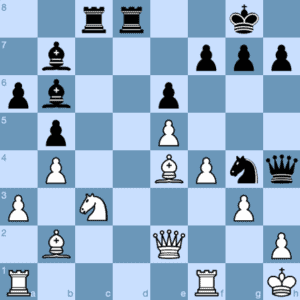
Go on, then…
22 …Rxc3!!
23 gxh4 (23 Bxc3 Bxe4+ forces checkmate.)
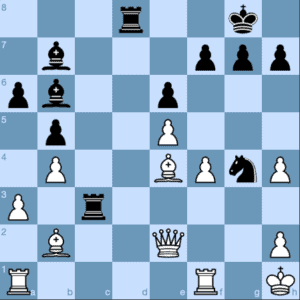
Now what?
23 …Rd2!!
24 Qxd2 Bxe4+
25 Qg2
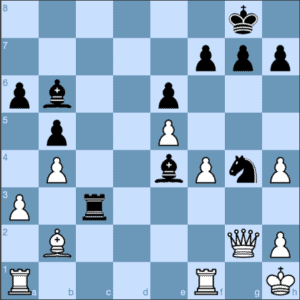
25 …Rh3!! Checkmate is inevitable and White resigned, 0-1.
And finally, which aspect of your chess life gives you the most satisfaction (writer, player coach, other…)?
I love to write and develop chess content, written and on video. In the other category I’d like to mention that I also enjoy doing live commentary for events, like I do every year for the German Youth championships.
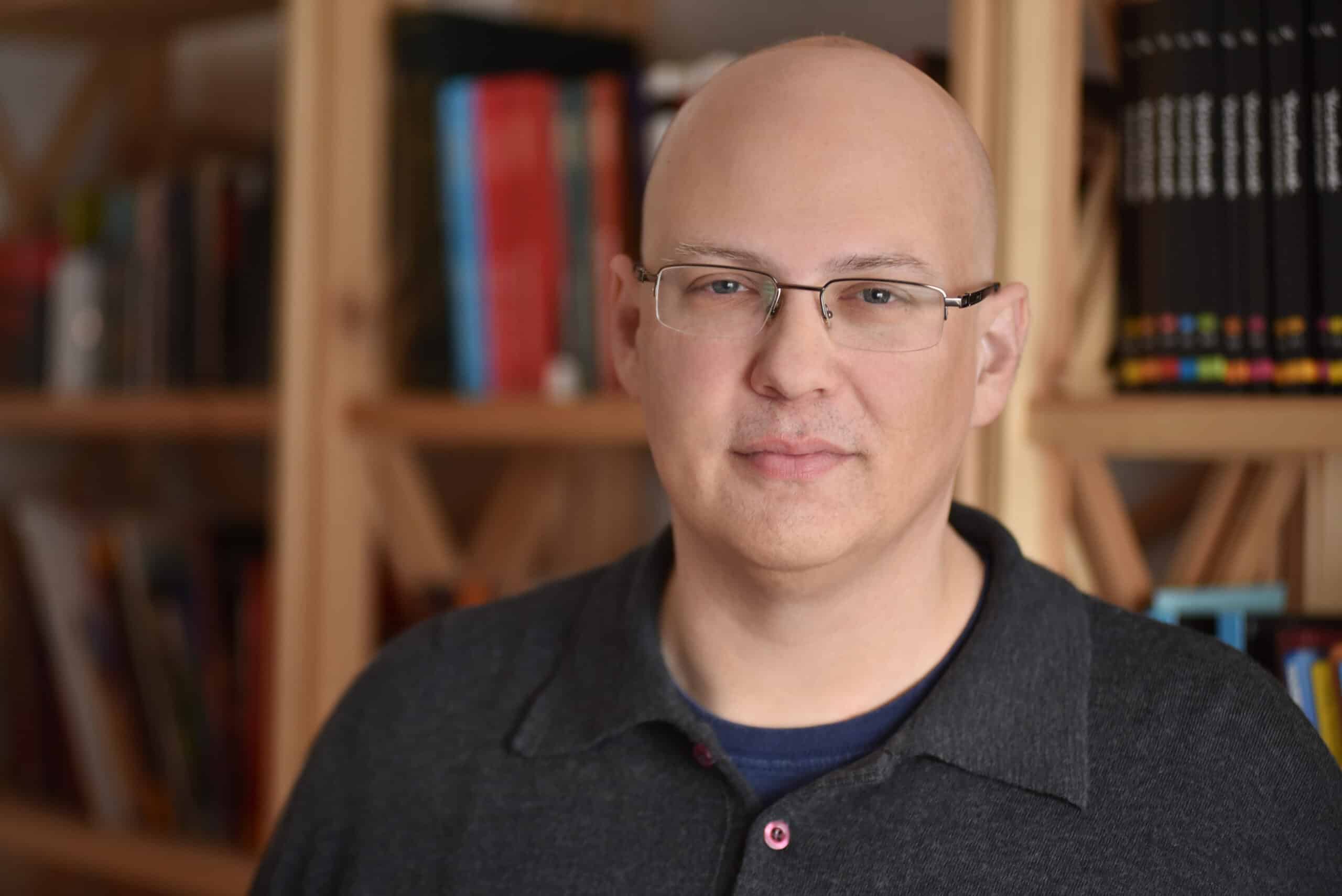
Thank you very much, International Master Christof Sielecki!
Our Interviews
The other interviews in our popular series are here:


